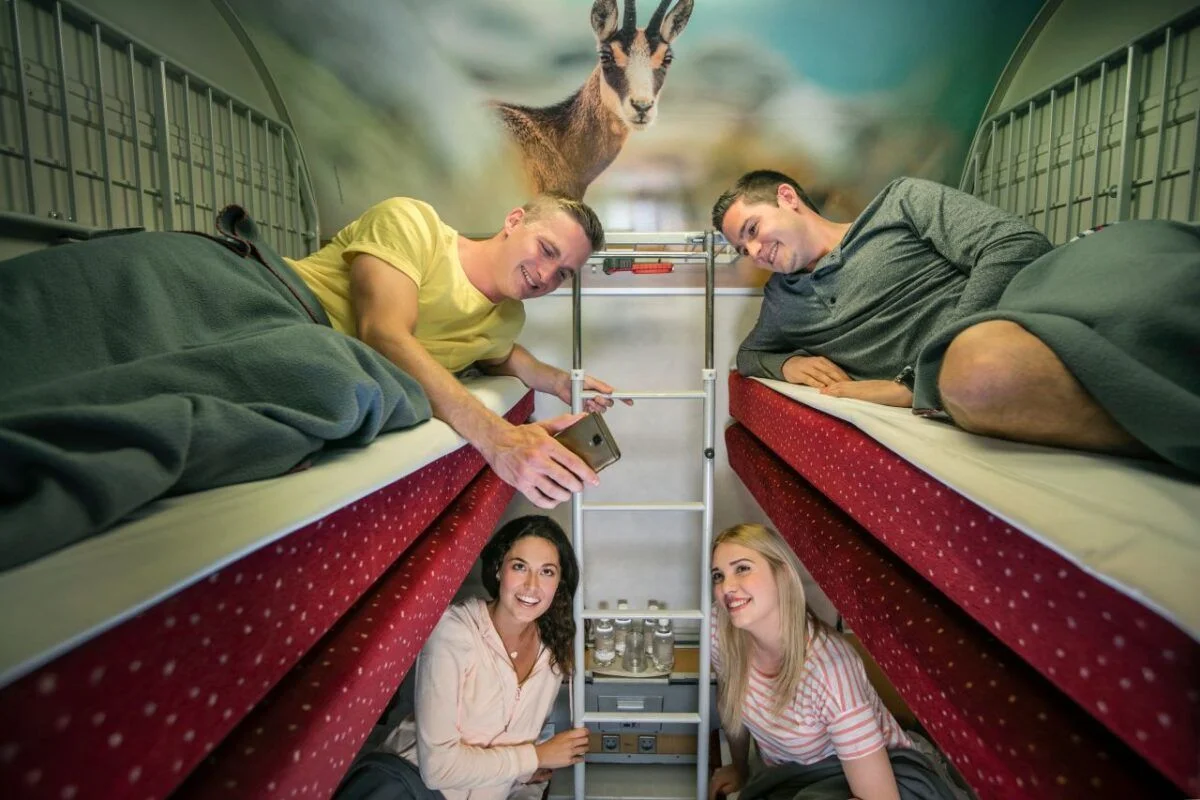Rail transport between Germany and Austria is witnessing a significant surge, with Deutsche Bahn (DB) and Austrian Federal Railways (ÖBB) projecting a 40% increase in passengers by year-end compared to five years ago. This uptick has prompted both companies to enhance their cross-border long-distance services.
Stefanie Berk, a board member at DB Fernverkehr, emphasized the growing preference for the eco-friendly train option for cross-border travel. She stated, “The shift to rail is continuing unabated. We aim to further this growth with new trains, enhanced comfort, and increased connections, achieved through collaboration between the rail companies.”
Dr. Sabine Stock of ÖBB highlighted the ambition to double Nightjet train passengers by 2030, with Deutsche Bahn playing a pivotal role. The introduction of new connections from Berlin to Paris and Brussels and the upcoming generation of Nightjet trains in Germany underscore the commitment of both DB and ÖBB to the night train service.
Come December, the timetable will introduce an additional ICE link between Berlin and Vienna via Nuremberg, extending to Hamburg. Furthermore, a daily ICE service from Berlin to Innsbruck via Frankfurt and Stuttgart will replace the current weekend-only schedule. Enhanced frequency is also on the cards, with Munich and Salzburg set to have hourly connections from 6 am to 9 pm, and Innsbruck and Munich every two hours between 6:40 am and 9:40 pm.
In terms of infrastructure, both ÖBB and DB are upping their game. The Frankfurt–Munich–Salzburg–Klagenfurt route will soon feature the ICE 4 trains, promising a superior travel experience. Additionally, the new generation of Railjets, set to debut on the Munich-Italy route in April 2024, will offer more seats and enhanced comfort.
The night service partnership is also expanding, with Nightjet connections from Berlin and Vienna to Paris and Brussels launching this December, and daily services commencing in fall 2024.
The year 2023/24 will also see the introduction of the new ÖBB Nightjet trains, initially on the Hamburg-Vienna and Hamburg-Innsbruck routes. These state-of-the-art trains, capable of speeds up to 230 km/h, will redefine comfort with features like individual Mini Cabins and accessibility for those with mobility challenges.













